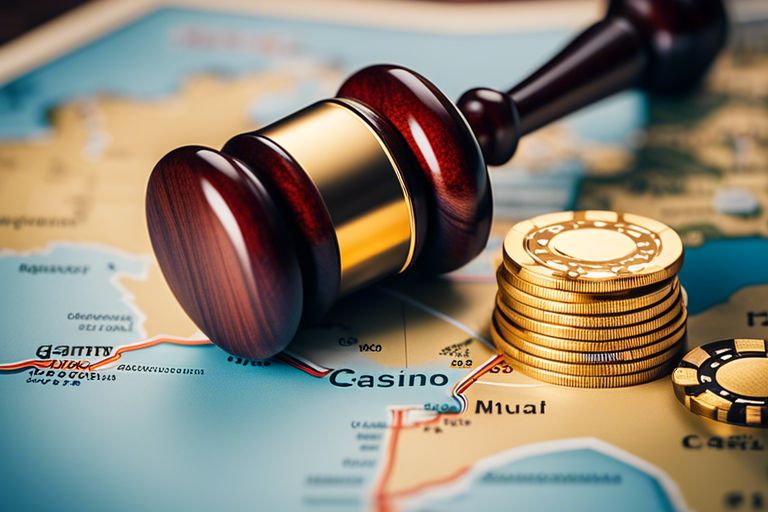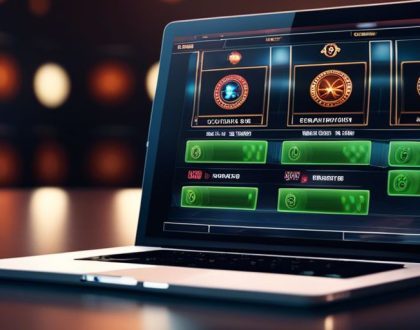Navigating the Legalities of Malta’s Gaming Industry

There’s no denying that Malta has become a hub for the gaming industry in recent years. With a reputation for being one of the most progressive and regulated jurisdictions for gaming operators, navigating the legalities of this industry is crucial for success. From acquiring licenses to understanding the tax implications, there are numerous factors to consider when operating within the Maltese gaming landscape.
Foundations of Malta's Gaming Legislation
Historical Overview
One of the key factors that has contributed to Malta’s prominence in the gaming industry is its long and rich gaming history. Dating back to the early 2000s, Malta recognized the potential of the gaming industry and took proactive steps to regulate and legalize online gaming. This forward-thinking approach laid the foundations for Malta to become a reputable jurisdiction in the global gaming market.
Key Acts and Regulations Governing Gaming
Malta’s strategic location at the crossroads of Europe and Africa has made it an attractive destination for gaming companies seeking a stable and secure regulatory environment. The Malta Gaming Authority (MGA) is the regulatory body responsible for overseeing all gaming activities in Malta. The Gaming Act and the Remote Gaming Regulations are the primary legal instruments that govern the gaming industry in Malta, ensuring fair play, player protection, and responsible gaming practices.
To
Ensuring compliance with these key legislations is crucial for operators looking to establish a presence in Malta’s gaming industry. The stringent regulatory framework provides a level playing field for all operators while safeguarding the interests of players and upholding the integrity of Malta’s gaming sector.
Licensing Procedures and Requirements
While navigating the legal landscape of Malta’s gaming industry, understanding the licensing procedures and requirements is crucial for operators seeking to enter this market. Malta has established itself as a hub for gaming companies due to its robust regulatory framework and favorable tax regime.
Types of Gaming Licenses in Malta
There are several types of gaming licenses available in Malta, including remote gaming licenses, critical gaming supply licenses, and gaming service licenses. Each license has its own set of requirements and eligibility criteria, depending on the nature of the gaming operation. It is vital for operators to determine the appropriate license for their specific business activities to ensure compliance with Maltese gaming laws and regulations. Any deviation from the licensing requirements can result in penalties or revocation of the license.
| Remote Gaming License | Critical Gaming Supply License |
| Gaming Service License | |
Application and Processing Steps
Gaming licenses in Malta are issued and regulated by the Malta Gaming Authority (MGA). The application process involves a series of steps, including submission of detailed documentation, background checks on the applicant, and compliance with anti-money laundering regulations. It is important for operators to follow the prescribed steps accurately to avoid delays in the processing of their license application and to ensure a successful outcome.
Procedures for obtaining a gaming license in Malta can be complex and time-consuming, requiring applicants to demonstrate their financial stability, technical capabilities, and adherence to responsible gaming practices. Working with legal advisors experienced in Maltese gaming law can help operators navigate the application process efficiently and effectively.
Compliance and Due Diligence Measures
One of the critical aspects of operating in Malta’s gaming industry is maintaining compliance with all regulatory requirements and due diligence measures. This includes implementing anti-money laundering procedures, responsible gaming policies, and data protection safeguards. Application of best practices in compliance not only ensures regulatory adherence but also enhances the reputation and trustworthiness of the operator in the market.
Taxation and Financial Legislation
All gaming entities operating in Malta are subject to specific tax laws and financial regulations outlined by the Malta Gaming Authority (MGA). It is crucial for companies within the gaming industry to adhere to these guidelines to ensure compliance and avoid potential legal issues.
Tax Rates and Structures for Gaming Entities
To operate legally in Malta, gaming entities must understand the tax rates and structures imposed on them. The tax rates for gaming companies vary depending on the type of license held, with rates ranging from 0.5% to 5% of the company’s gross gaming revenue. Additionally, there are specific tax deductions and credits available to gaming entities, which can impact their overall tax liability.
Reporting and Payment Obligations
One of the key responsibilities for gaming entities in Malta is to meet their reporting and payment obligations diligently. This includes submitting accurate financial reports to the MGA on a regular basis and ensuring timely payment of any taxes owed. Failure to comply with these obligations can result in severe penalties, including fines and potential revocation of a gaming license.
Understanding the importance of meeting reporting and payment obligations is necessary for gaming entities to maintain a good standing within the industry. By prioritizing compliance with financial regulations, companies can avoid legal repercussions and operate with confidence in Malta’s gaming sector.
Avoidance of Financial Malpractice
Legislation surrounding the avoidance of financial malpractice is in place to safeguard the integrity of Malta’s gaming industry. This includes strict guidelines on money laundering prevention, responsible gaming practices, and transparent financial reporting. Companies must implement robust systems and controls to detect and prevent any financial misconduct, ensuring a fair and secure gaming environment for all stakeholders.
Plus, regular audits and assessments are conducted by the MGA to verify compliance with financial regulations, highlighting the authority’s commitment to upholding industry standards and protecting the interests of both operators and players.
Player Protection and Responsible Gaming
Once again, the legal landscape in Malta reinforces the importance of player protection and responsible gaming within the gaming industry. It is paramount for operators to uphold the highest standards in ensuring the well-being of their players and promoting responsible gaming practices.
Laws on Player Rights and Safety
Player rights and safety are protected under Maltese gaming laws, which require operators to implement measures to prevent underage gambling, identify and assist problem gamblers, and protect player funds. The Malta Gaming Authority (MGA) enforces strict regulations to ensure that operators comply with these requirements, safeguarding players from potential harm.
Responsible Gaming Initiatives
One of the key aspects of the gaming industry in Malta is the focus on responsible gaming initiatives. It is crucial for operators to promote responsible gaming practices, provide resources for players to seek help if needed, and incorporate tools for self-exclusion and setting limits on gambling activities.
It is vital for operators to collaborate with responsible gaming organizations and incorporate player protection measures in their operations. By raising awareness about responsible gaming and offering support to players who may be at risk, operators can demonstrate their commitment to ethical standards and player well-being.
Remedies for Player Disputes
Player disputes can arise in the gaming industry, and it is crucial for operators to have mechanisms in place to address and resolve such issues promptly. The MGA requires operators to have clear procedures for handling player complaints, ensuring that players have avenues for seeking redress and resolving disputes in a fair and transparent manner.
Protection of player rights and interests is a top priority in Malta’s gaming industry, and operators must demonstrate their commitment to upholding these standards to maintain a safe and trusted gaming environment for all players. By adhering to regulations and implementing responsible gaming practices, operators can contribute to the overall integrity and sustainability of Malta’s gaming industry.
Anti-Money Laundering (AML) and Counter-Terrorist Financing (CTF) Regulations
Now, in Malta, the gaming industry is subject to stringent Anti-Money Laundering (AML) and Counter-Terrorist Financing (CTF) regulations to prevent these criminal activities from infiltrating the sector. The country has a robust legal framework in place to ensure that gaming operators adhere to the highest standards of compliance and integrity.
AML/CTF Legislative Framework
AntiMoney laundering and counter-terrorist financing laws in Malta are primarily governed by the Prevention of Money Laundering Act and the Prevention of Money Laundering and Funding of Terrorism Regulations. These laws require gaming operators to implement thorough due diligence procedures to verify the identities of their customers, monitor transactions for suspicious activities, and report any unusual or suspicious transactions to the relevant authorities.
Compliance Requirements for Gaming Operators
On top of conducting customer due diligence and ongoing monitoring of transactions, gaming operators in Malta are required to appoint a Money Laundering Reporting Officer (MLRO) who is responsible for ensuring compliance with AML/CTF regulations. Additionally, they must provide regular staff training on identifying and reporting suspicious activities.
Understanding the importance of these regulations, gaming operators must also keep detailed records of customer transactions and be prepared to provide this information to the authorities upon request. Failure to comply with AML/CTF regulations can result in severe penalties, including fines and revocation of gaming licenses.
Monitoring and Enforcement Actions
To ensure compliance, the Malta Gaming Authority (MGA) conducts regular compliance audits and assessments of gaming operators. The MGA has the authority to impose sanctions on operators found to be in violation of AML/CTF regulations, including the suspension or revocation of licenses. This proactive approach underscores Malta’s commitment to upholding the integrity of its gaming industry.
Framework: The MGA’s enforcement actions serve as a deterrent to potential money launderers and terrorist financiers looking to exploit the gaming sector for illicit purposes. By maintaining a strong regulatory framework and enforcing compliance measures, Malta aims to protect its reputation as a reputable gaming jurisdiction while safeguarding against financial crime.
Online Gaming Regulation
Unlike many other countries, Malta has established itself as a pioneer in online gaming regulation, offering a comprehensive legal framework that covers various aspects of the industry. The Malta Gaming Authority (MGA) oversees the licensing and regulation of online gaming operators, ensuring they comply with strict standards to protect players and uphold the integrity of the industry. This regulatory body has been instrumental in promoting a safe and transparent gaming environment in Malta.
Special Provisions for Digital Platforms
Online gaming operators in Malta are subject to special provisions that govern the operation of digital platforms. These regulations aim to ensure that online gaming websites are secure, fair, and transparent for players. The MGA mandates that operators implement measures to prevent fraud, money laundering, and underage gambling, while also promoting responsible gaming practices.
Technology Use and Data Protection
For online gaming operators in Malta, technology use and data protection are paramount considerations. The MGA requires operators to implement robust security measures to safeguard players’ personal information and financial transactions. Additionally, operators must comply with data protection laws to ensure the privacy and confidentiality of player data.
Special attention is given to the use of technology in online gaming operations, with a focus on ensuring the fairness and integrity of games. Random Number Generators (RNGs) and other technologies are regularly tested to ensure they meet the highest standards of fairness and accuracy.
Cross-Border Gaming and International Law
With the increasing popularity of online gaming, cross-border gaming has become a common practice. Malta’s legal framework includes provisions for cross-border gaming activities, allowing operators to offer their services to players in other jurisdictions. The MGA works closely with international regulatory bodies to ensure that operators comply with the laws and regulations of the countries in which they operate.
To operate in multiple jurisdictions, online gaming operators must navigate a complex web of international laws and regulations. Compliance with these laws is imperative to avoid legal challenges and maintain a positive reputation in the global gaming market.
Intellectual Property and Brand Protection
Many companies in Malta’s gaming industry rely heavily on their intellectual property and brand recognition to stand out in a competitive market. As such, it is crucial for these companies to understand the legal framework that governs intellectual property rights and brand protection in the country.
Trademark and Copyright Laws in Gaming
Any entity operating in Malta’s gaming industry must adhere to the country’s trademark and copyright laws to protect their intellectual property. Trademarks help companies distinguish their products and services from competitors, while copyrights protect original works such as gaming software, graphics, and sound recordings.
Brand Protection Strategies
Trademark registrations and copyright protections are imperative components of brand protection strategies in Malta’s gaming industry. Companies should also consider implementing measures such as monitoring and enforcing their intellectual property rights, partnering with experienced legal counsel, and developing internal policies to safeguard their brand.
Trademark infringement and copyright violations can have serious consequences for companies operating in Malta’s gaming industry. It is imperative for businesses to proactively protect their intellectual property to maintain their competitive edge and avoid potential legal disputes.
Enforcement Against Intellectual Property Violations
Understanding the enforcement mechanisms available for combating intellectual property violations is crucial for companies in Malta’s gaming industry. From cease and desist letters to civil litigation, companies have various options for enforcing their intellectual property rights and deterring potential infringers.
On the other hand, failing to take action against intellectual property violations can undermine a company’s brand reputation and market position. It is imperative for businesses to prioritize intellectual property protection and enforcement to safeguard their assets and maintain a strong presence in Malta’s gaming industry.
Employment and Labor Laws in the Gaming Sector
Keep in mind that the gaming sector in Malta is subject to specific employment and labor laws that must be adhered to. These regulations are in place to protect both employers and employees and ensure a fair and safe working environment within the industry.
Work Permits and Visas for Non-Maltese Employees
Sector: When hiring non-Maltese employees in the gaming sector, it is crucial to be aware of the work permit and visa requirements. Non-Maltese individuals must obtain the necessary permits to legally work in Malta. Employers must assist their foreign employees in obtaining the required paperwork to comply with regulations.
Employee Rights and Obligations
NonMaltese: Non-Maltese employees working in the gaming sector have rights and obligations that are protected under Maltese labor laws. These rights include fair wages, working hours, and conditions, as well as the right to join a union. Employers are obligated to ensure that their employees are aware of their rights and provide a safe and healthy workplace.
Visas
Sector: Health and safety regulations are paramount in the gaming sector to ensure the well-being of employees. Employers must comply with regulations regarding workplace safety, provide necessary training, and implement measures to prevent accidents and occupational hazards. Regular inspections and assessments should be conducted to maintain a safe working environment for all employees.
Labor: It is crucial for employers in the gaming sector to prioritize the health and safety of their employees. By implementing strict safety protocols, providing adequate training, and fostering a culture of safety, employers can create a positive and productive work environment. Failure to comply with health and safety regulations can result in severe consequences, including fines and legal action.
Dispute Resolution and Litigation
Despite the best efforts to adhere to regulations and agreements, disputes can still arise in Malta’s gaming industry. When dealing with legal matters, it is important to understand the options available for resolving conflicts efficiently.
Alternative Dispute Resolution Mechanisms
With the aim of providing a quicker and less costly alternative to traditional litigation, various alternative dispute resolution mechanisms are available in Malta. These may include negotiation, mediation, and arbitration. Parties involved in a dispute can voluntarily choose these methods to find a mutually acceptable solution without the need to go to court.
Litigation Process in Malta
On matters that cannot be resolved through alternative means, the litigation process in Malta follows a structured legal framework. Litigation typically involves filing a claim, responding to the claim, discovery of evidence, court hearings, and a final judgment. The Maltese legal system ensures that both parties have the opportunity to present their case before a judge who will decide on the matter.
The litigation process in Malta is governed by the Civil Court Act and the Code of Organization and Civil Procedure. It is crucial for parties involved in a legal dispute to adhere to the procedural requirements and deadlines set by the court to avoid any adverse consequences.
The Role of Regulatory Bodies in Disputes
The regulatory bodies in Malta play a pivotal role in handling disputes within the gaming industry. These bodies, such as the Malta Gaming Authority (MGA), are responsible for overseeing compliance with gaming laws and regulations. In case of conflicts or violations, regulatory bodies may conduct investigations, impose sanctions, or revoke licenses.
Emerging Trends and Future Perspectives
Technological Advancements and Legal Adaptations
For Malta’s gaming industry, staying ahead of technological advancements is crucial for success in the ever-evolving landscape. As innovation continues to drive the sector forward, legal frameworks must also adapt to ensure regulatory compliance and consumer protection. From the integration of blockchain technology to the rise of virtual reality casinos, operators must navigate this dynamic environment while adhering to stringent legal requirements.
Predictions for Regulatory Changes
Changes in regulatory landscape are inevitable as the gaming industry matures and new challenges arise. Predictions suggest that stricter anti-money laundering measures, enhanced data protection protocols, and more stringent responsible gaming regulations will shape the future of Malta’s gaming sector. Operators should anticipate these changes and proactively adjust their practices to meet the evolving regulatory standards.
Regulatory oversight in Malta’s gaming industry is expected to intensify in response to growing global scrutiny and evolving compliance standards. Operators must stay informed and agile to navigate the changing regulatory environment effectively.
Malta's Position in the Global Gaming Industry
On a global scale, Malta continues to maintain its reputation as a leading hub for the gaming industry. With a robust regulatory framework, strategic location, and a skilled workforce, Malta offers a competitive advantage for operators seeking a stable and supportive environment. The country’s proactive approach to regulatory reform and commitment to innovation positions it favorably in the global gaming market.
Perspectives: As technological advancements and regulatory changes reshape Malta’s gaming industry, operators must prioritize compliance and adaptability to thrive in this competitive landscape. By embracing innovation, staying informed on regulatory developments, and leveraging Malta’s strategic advantages, operators can position themselves for long-term success in the dynamic world of gaming.
Final Words
Conclusively, understanding and navigating the legalities of Malta’s gaming industry is crucial for anyone looking to enter this highly regulated market. By familiarizing yourself with the licensing requirements, tax regulations, and compliance standards set forth by the Malta Gaming Authority, you can ensure your operations are legally sound and avoid any potential legal pitfalls. With the right guidance and adherence to the laws governing the industry, you can establish a successful and sustainable gaming business in Malta.
Recommended Posts

Inside the Realm of iGaming
July 5, 2024

Historical Tapestry of Malta
July 5, 2024

Crypto Casinos: Bitcoin Impact on Online Gambling
July 5, 2024




